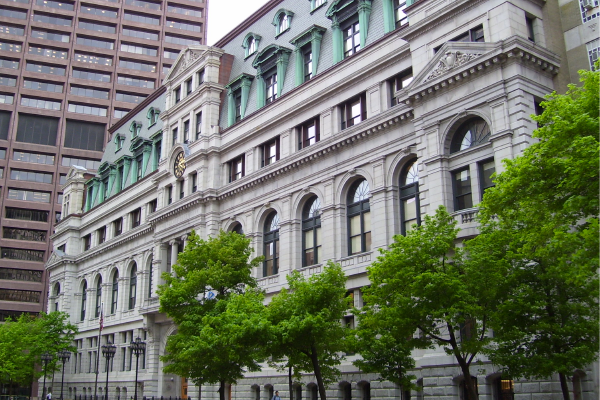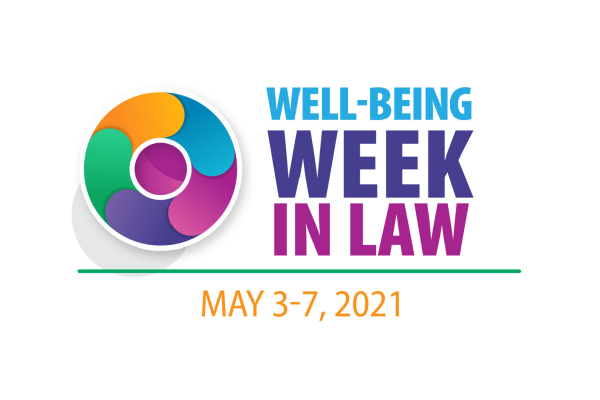Massachusetts Supreme Judicial Court Chief Justice Ralph D. Gants provided updates on work to improve well-being in the legal profession and public access to justice in the 6th Annual State of the Judiciary Address hosted by the Mass Bar Association on October 30, 2019 at the John Adams Courthouse.
Chief Justice Gants began his remarks with an update on the work of the SJC Steering Committee on Lawyer Well-Being, which was formed in 2018. The Committee issued its report in July 2019 with the help of hundreds of lawyers and judges, identifying recommendations “to improve the working life of lawyers in whatever setting or area of law they practice and to address the aspects of our legal profession that contribute to preventable stress, to isolation, to mental health challenges, and to alcohol and substance use disorders.”
Chief Justice Gants announced the formation of a new SJC Standing Committee on Lawyer Well-Being in light of the Steering Committee’s report, as well as the SJC’s plans to establish a pilot mentoring program for newly admitted solo and small firm lawyers. Chief Justice Gants alerted members of the profession to expect and respond promptly to a survey that has now been sent to Massachusetts lawyers, seeking information to help better serve members of the bar. Before shifting his remarks to focus on access to justice, Chief Justice Gants highlighted our organization’s role in providing the wide range of services necessary to improve lawyer well-being:
“Lawyers Concerned for Lawyers is the non-profit entity supported by bar dues that provides support and counseling, not only for those addressing the challenges of alcohol or substance abuse, or mental health issues, but also for those confronting challenges in establishing or managing a private law office or in learning the technologies they will need to succeed in a small or solo practice. We have begun to explore with LCL whether more can be done to ensure that lawyers know of the range of services provided by LCL, whether LCL should have a stronger statewide presence beyond Boston, and whether its current level of funding is adequate to accomplish its important and potentially expanded mission.”
We look forward to supporting expanded efforts to improve well-being across the Massachusetts legal community. Our FY20 Strategic Plan Report offers more details on how we’re preparing to reach more lawyers, law students, and judges in Massachusetts as we continue to explore expansion with the SJC. Among other efforts, we are developing a volunteer program to enable more individuals in the profession to contribute to a healthy and thriving profession — find more here.
Chief Justice Gants discussed the SJC Working Group on Substance Use and Mental Health, which was created this summer and includes representatives from throughout the Trial Court. The Working Group is endeavoring to issue a report by 2021 “that will provide guidance as to how we can wisely, effectively, and humanely support those who come to us in court with substance use and mental health challenges in a manner that is consistent with public safety and fundamental principles of justice.”
Chief Justice Gants shared an update on the Trial Court’s work to develop a virtual court service center available to everyone online to better empower litigants. The Trial Court worked with the Massachusetts Appleseed Center for Law & Justice to study the idea over the past three years and issued its report in October 2019, which will be used over the next few months to begin mapping a path forward. And noting the percentages of self-representation in summary process eviction cases and legislative efforts forming to provide legal counsel to indigent parties in eviction proceedings, Chief Justice Gants discussed further context that will enable justice to be delivered more effectively.
READ FULL PRESS RELEASE ON THE STATE OF THE JUDICIARY ADDRESS HERE, including the full remarks by Chief Justice Gants.
Trial Court Chief Justice Paula M. Carey also delivered remarks, discussing efforts to implement criminal justice reform, to promote diversity, equity, and inclusion, and to address substance use disorders and behavioral health and related trauma.
Court Administrator Jon Williams also spoke, referring to Massachusetts Constitution Article XI to highlight what access to justice requires, and expressing gratitude for the additional funds required to meet the wide range of technology needs of the Judicial Branch.




